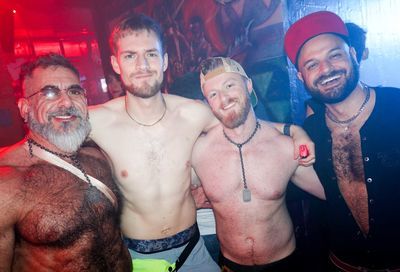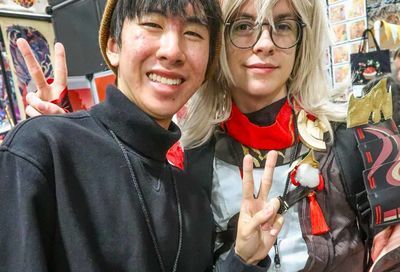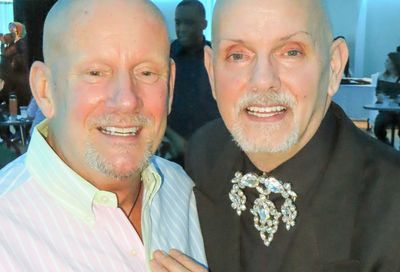Volunteers for Life
The search for an HIV/AIDS vaccine depends on volunteers
In the United States and around the world, more than 28,000 dedicated men and women have literally rolled up their sleeves and joined the fight against HIV/AIDS by participating in an HIV-vaccine study. Scientists, researchers and community activists are the most recognized names and faces in the fight against HIV/AIDS. But often missing from the story are the volunteers who participate in clinical trials, providing the critical link that allows researchers to see how the human body reacts to potential vaccines against this deadly virus.
On May 18, HIV Vaccine Awareness Day, we honor all the people involved in HIV-vaccine research, and particularly thank those trial participants who dedicate their time and energy to helping move science forward in this long-term quest.
I first became involved in this effort nearly 10 years ago when I volunteered for an early HIV Vaccine Study. While there have been many setbacks since then, there are also now many reasons to be hopeful.
Ten years may seem like a long time, but a long road to a vaccine is not surprising. It took scientists 42 years to develop a measles vaccine and 47 years to develop one for polio. Now, these vaccines are saving millions of lives around the globe.
Last year, a trial in Thailand showed the first evidence in humans that a vaccine could prevent HIV infection. And while the positive results were modest, the data from the study will help scientists further light the path toward a vaccine. This milestone would never have been possible without the more than 16,000 volunteers who took part in the study for over six years.
Volunteers here in D.C. play an equally important role in this effort. Black, white, Hispanic, gay, straight, male, female, transgender — these generous volunteers are essential to finding an effective vaccine that works for everyone and they reflect the diverse makeup of our country and millions of people from all walks of life affected by HIV/AIDS. For scientists to develop a vaccine that will work for everyone, they must be able to see how different races and genders react to various vaccine candidates and to learn from the trial participants’ experiences, which is why each and every volunteer plays a critical role in this fight.
Kymone Freeman is one such local volunteer.
”I have dedicated myself to do all that I can to destigmatize the social prejudice and address the fear and ignorance surrounding the greatest pandemic of our time,” says Freeman, who lost his uncle to AIDS. ”Our only hope of truly curbing this pandemic is the discovery of a vaccine. That is why I fight.”
As the search for a vaccine forges ahead, researchers continue to test vaccine candidates. As always, volunteer safety is the top priority, and vaccines tested in humans do not contain the actual HIV virus. In addition, several external groups including community advisory boards (CABs), comprised of local community representatives and HIV-prevention specialists, monitor studies in each trial site to ensure participant safety in each study. These boards assist in the planning, development and implementation of research, ensure that community concerns are considered, and serve as a voice for the community and study volunteers.
Finding a vaccine is an effort by many to help many more. Scientists, CABS, HIV-prevention educators, and study volunteers all continue to play key roles in finding what we hope will one day end the spread of HIV/AIDS. We salute them all for their efforts this HIV Vaccine Awareness Day and are reminded of their enormous contributions to this historic endeavor.
David Mariner is executive director of The Center, D.C.’s LGBT community center, and co-chair of the Capital Area Vaccine Effort (CAVE). To learn more about HIV Vaccine Awareness Day visit aidsvaccine.org.
Support Metro Weekly’s Journalism
These are challenging times for news organizations. And yet it’s crucial we stay active and provide vital resources and information to both our local readers and the world. So won’t you please take a moment and consider supporting Metro Weekly with a membership? For as little as $5 a month, you can help ensure Metro Weekly magazine and MetroWeekly.com remain free, viable resources as we provide the best, most diverse, culturally-resonant LGBTQ coverage in both the D.C. region and around the world. Memberships come with exclusive perks and discounts, your own personal digital delivery of each week’s magazine (and an archive), access to our Member's Lounge when it launches this fall, and exclusive members-only items like Metro Weekly Membership Mugs and Tote Bags! Check out all our membership levels here and please join us today!

















